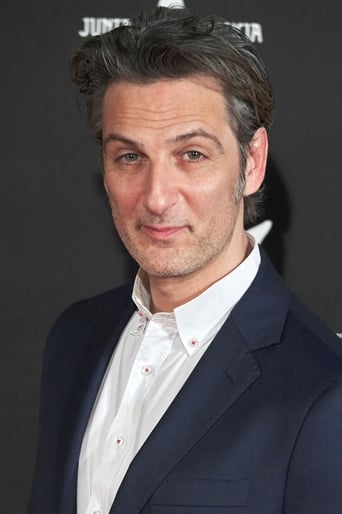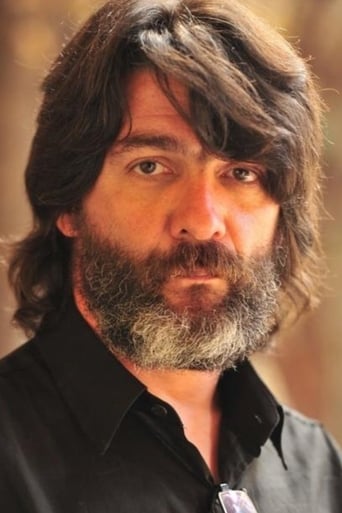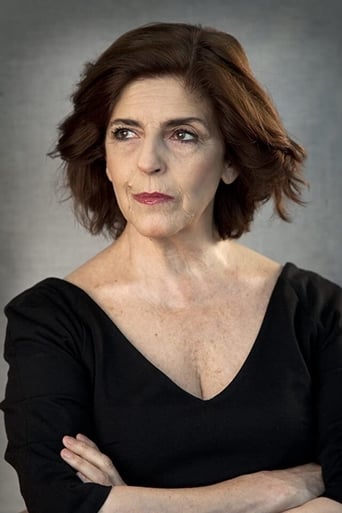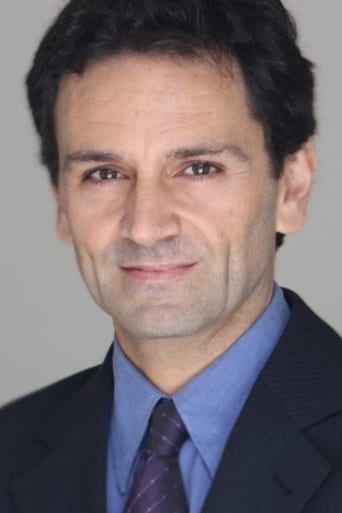Onlinewsma
Absolutely Brilliant!
TrueHello
Fun premise, good actors, bad writing. This film seemed to have potential at the beginning but it quickly devolves into a trite action film. Ultimately it's very boring.
Adeel Hail
Unshakable, witty and deeply felt, the film will be paying emotional dividends for a long, long time.
Lela
The tone of this movie is interesting -- the stakes are both dramatic and high, but it's balanced with a lot of fun, tongue and cheek dialogue.
Reno Rangan
This was the Argentina's submission for last year's American Academy Awards and failed to make into the final five. But it was a clean sweep in Argentinian Academy Awards in the same year. Forget that past sad occurrence, I mean the Oscars, this movie was great and I liked it very much. After a very long gap I saw an Argentinian movie reckoning to be a good and it was. I am satisfied and glad I saw it which was loosely based on the director's real life story when he was a child.This story was told from the perspective of a kid called Juan. His parents are the activists during the Cold War known as the Dirty War. After their return to the home country with different names, Juan joins the school known as Ernesto. He finds hard to understand his parents' behaviour, but comfortably settles with his new fake name with a little help from his uncle. The problem arises when his true identity matters the most. Whether he reveals or not is the crux of the movie's end.In my recent watch I had seen the people who struggle while protesting in a country's revolution. It might be based on real like 'NO' or fictional like 'Night Train to Lisbon', but majority of them end in heartbreak tragedy. Similarly, this movie opened its account in a simple manner like most of the drama that based on the revolution theme. Yes, of course it confuses at first about what's going on then slowly explain the situation. But all the difference and racy pace emerge suddenly in the last quarter of the movie. Till then I was in the movie trying to concentrate, but then instantly put me on the edge of my seat with cute romance and followed by thriller. That, the end portion of the story of last 10-15 minutes took the movie to the heights.Yes, like I said the movie kicks off with a slow and boring pace with nothing much to enjoy earlier and ends in a style. Some movies are largely depends on the story's end solution and so this. To me it looked fine movie, different people will have different opinions, so watch it by yourself and express yours.
SnoopyStyle
It's 1979, Argentina. 12 year old Juan and his family returns after their exile in Cuba. They are guerrillas hunted by the military junta. Juan hides his true identity to everyone including his friends at school where they know him as Ernesto.It's an Argentinian film with the potential of compelling characters. For a film of paranoia, we need to feel it much more. The filmmaking style is slow paced. It needs a lot more energy, and I'm not advocating some big action scene. There's got to be more intensity in this story.The kids do good work. I like their characters. Their scenes have the intensity I'm talking about. I actually think the adults don't contribute as much. This feels like a lesser 'Running on Empty'. I do like the animation to break up some of the violence. It works well as from a child's point of view. Overall it tells an interesting story.
gradyharp
For so many of us the governmental complexities that seem to occur with regularity in South America never seem to be clear. CLANDESTINE CHILDHOOD ('Infancia clandestine') offers the opportunity to not only be informed about the machinations of such movements, but also allows us entry into the personal view of the changes that political events impact so powerfully on the citizens.Benjamín Ávila who wrote (with Marcelo Müller) and directed this brilliant little film is sharing his experiences of living through the times that his story relates. The year is 1979 and an Argentinean family who have been exiled in Cuba return to Argentina as Montoneros - a guerrilla group fighting against the military junta that controlled Argentina from 1976 to 1983. In a coup on March 24, 1976, a military junta seized power in Argentina and went on a campaign to wipe out left-wing terrorism with terror far worse than the one they were combating. Between 1976 and 1983 - under military rule - thousands of people, most of them dissidents and innocent civilians unconnected with terrorism, were arrested and then - los desaparecidos. The father Horacio (César Troncoso) and mother Cristina (the incredibly beautiful Uruguayan actress Natalia Oreiro), baby girl Vicki, and 12 year old son Juan are forced to change their names and hide from the authorities so that the guerrilla warfare can be accomplished. There is one other member of the family - Uncle Beto (Ernesto Alterio) - who seems to be the most solid tie between Juan (now called 'Ernesto') and his family's condition.'Ernesto' enters school, discovers Maria (Violeta Palukas) and from there the story becomes more one of a blossoming love than a country under military control. But the fear and eventual capture of Ernesto's family brings an end to a precious little love story: Ernesto must leave with the remaining members of his family and go to live with his grandmother Amalia (Cristina Banegas). Juan/Ernesto's childhood has become a clandestine one.The film is well acted and directed but most important it offers us a view of the conditions of living in Argentina during that dark cloud of Los Desaparecidos. It is a powerful yet very tender document about the effect of war on us all - but especially on children.Grady Harp
Nibbler007
Infancia Clandestina is a very touching movie. This review is written by an Argentinian so I felt it as a very interesting film in terms of script and acting, but more interesting as a historical testimony of our "dark ages" in terms of dictatorship and guerrilla. It would be fair to write the review in Spanish in order to put my feelings properly, but IMDb is mostly an English language site so I want to give other people from foreign countries my point of view with the little English I speak.From my perspective, the movie is accurately told in terms of storyline. I would recommend it as a documentary, because Benjamín Avila relived his own experience on this movie, and because most of the facts really happened (with the names changed and that sort of thing). The fact that underlines the tragic story of Juan/Ernesto, is that he is, as a child, forced to live in a world of fear, constantly missing what we think a normal childhood should be. His parents are loving ones but put him in abnormal situations in terms of caring for their livings and raise their children in those violent conditions. In fact, the story of the 70's here was that fearful and violent. You are obliged to take a part in the story. That's what the film left me. It's a thought- provoking one. And asks a lot of questions more than it tells answers. Ernesto Alterio (very good in his role) as Tío Beto is the bond of Juan/Ernesto to a happy childhood; but even with knowing how his life could end from one moment to another, tried to remind Juan/Ernesto and the rest of the family, those little moments of humanity that could have been forgotten in the middle of tragedy. There is plenty of humanity, but that feeling is volatile and more close to self-indulgence than true happiness, knowing the curse of events.On the other hand, the guiding line of Juan/Ernesto's family is that he 'd become one of their "soldiers" when he'd grown up. Rootless, full of hate for losing one by one his loved ones, Juan/Ernesto becomes an adult from one day to another. But this review is not complete if I don't give you a personal opinion of the whole situation. Ideologies, partidisms, dogma, they all conceived death as a part of them. During the movie I often compared the situation with Islamic children (or whoever is forced to live in war since a child). They are children, and they are manipulated taking part on massacres, kidnaps, war and dismemberance of their families. They are brutally witnessing the grown-ups stupidity, the absurd sacrifice. Yes, it was absurd then and it's absurd now. And that's the thing with the title of this review. Even a kid could realize the barbarism, the destruction of life that is presented in the movie. Unfortunately there is little room for choice. I'm not in position to judge the events since I was born after the dictatorship. I'm a son of democracy (whatever that means) and those stories are told to me, but fortunately I didn't have to live those tragic times. But I feel sorry for those kids who had a sad childhood and couldn't choose for a better life. And I blame the dictatorship as well as the contraire ideologies that put them in those awful and despicable situations. Coming back to the movie, it's a must. Even if you're not Argentinian. It's beautiful and a bit surrealistic. And it makes you think that some things can never be repeated for our children's sake.Greetings from Argentina!





